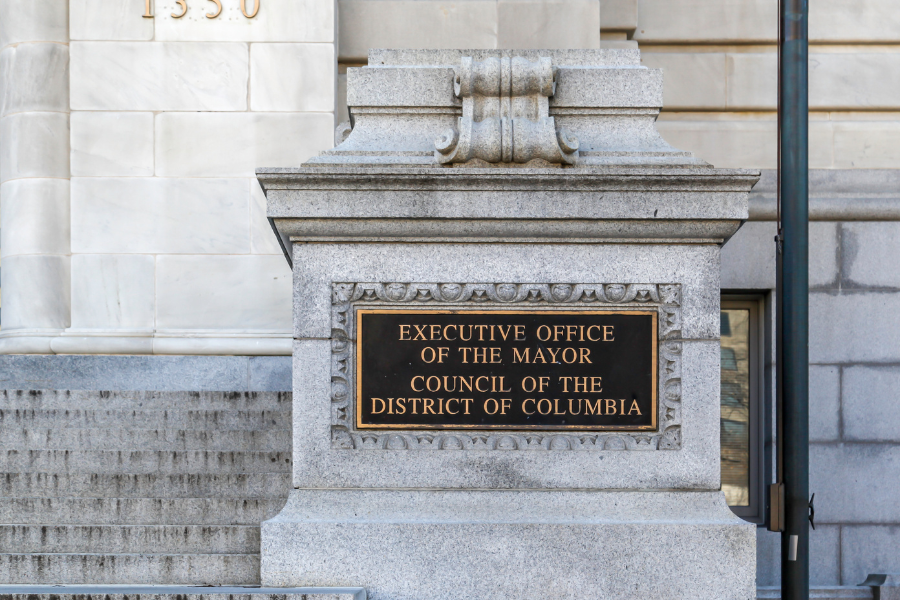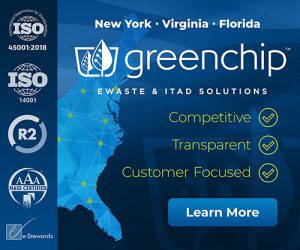
The Council of the District of Columbia voted unanimously in December to allow OEMs participating in the eCYCLE Program to contract with R2-certified facilities. | JHVE Photo/Shutterstock
The extended producer responsibility program in the nation’s capital will once again allow for the use of R2-certified electronics recycling companies.
Muriel Bowser, mayor of the District of Columbia, in January signed B24-1000, the Battery and Electronic Stewardship Amendment Act of 2022. The law went into effect in March.
The bill makes a number of tweaks to the city’s extended producer responsibility (EPR) program for electronics. Among them, it allows OEMs to contract with R2-certified or e-Stewards-certified facilities to recycle covered electronics. This marks a reversal from late 2021, when the Council of the District of Columbia passed a law allowing only e-Stewards-certified facilities to be used in the eCYCLE Program.
“We are grateful that D.C. was willing to reconsider their decision and are pleased that all R2-Certified facilities will be available to serve the residents of Washington, D.C. for the responsible reuse and recycling of their electronics,” said Corey Dehmey, executive director of Sustainable Electronics Recycling International (SERI), which manages the electronics recycling and reuse standard. “To make electronics sustainable, we need to continue to expand options for every city, county, state and country around the world, and this decision keeps us on that path.”
In fall 2022, the D.C. council began working on B24-1000, which made a number of changes requested by district regulators, including increasing producers’ requirements to provide public outreach and education. E-Scrap News wrote about the bill in October. At the time, the bill didn’t address certifications.
Later in October 2023, during a committee hearing, the Consumer Technology Association (CTA), which represents electronics brand owners, testified about the ongoing impacts of the council’s 2021 decision to disallow R2 vendors. Ally Peck, senior manager of environmental and sustainability policy at CTA, testified and submitted a letter to the council.
“This change caused a two-thirds reduction in the number of electronics recyclers manufacturers could work with in 2022 to meet their obligations under the law, increased the cost of collection and recycling and limited the ability of [registered organizations] to work with possible R2 certified permanent collection site partners,” she wrote in her letter. “There are 25 states in the U.S. that have some type of electronics stewardship or takeback law in place; all allow R2 and eStewards certified recyclers or recyclers that meet comparable qualifications to operate in their programs.”
The following month, the council’s Committee on Transportation and the Environment amended the bill to again allow R2-certified recycling companies. It was unanimously passed by the full council on Dec. 20 and signed by Bowser on Jan. 17.



